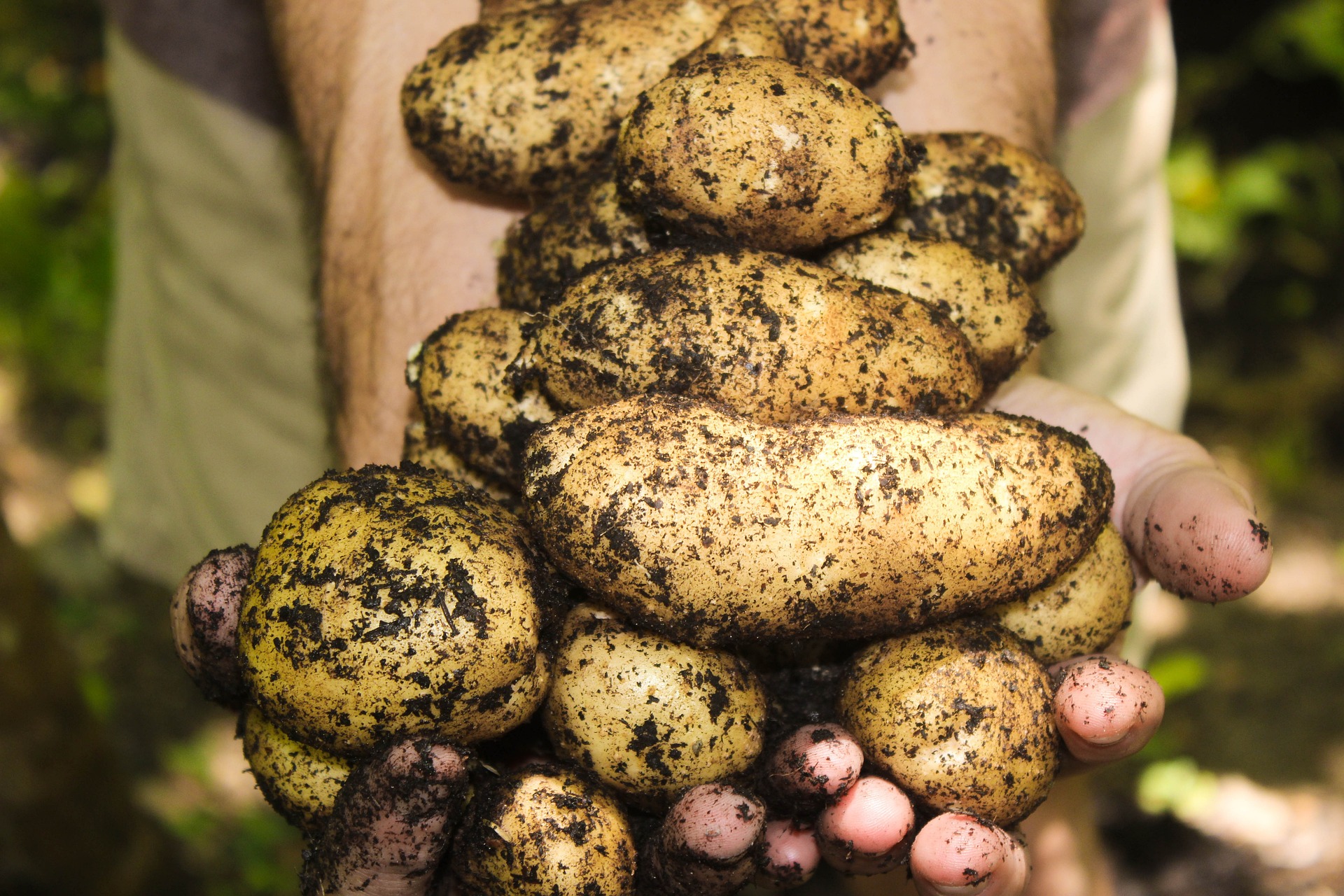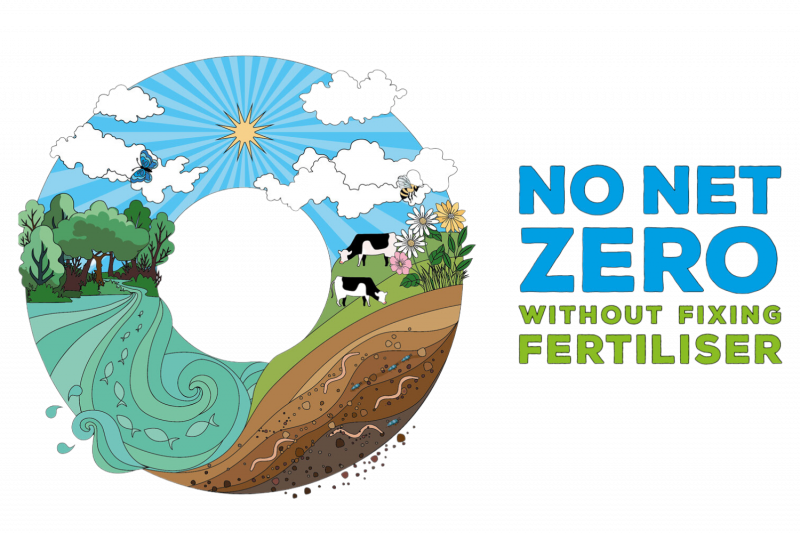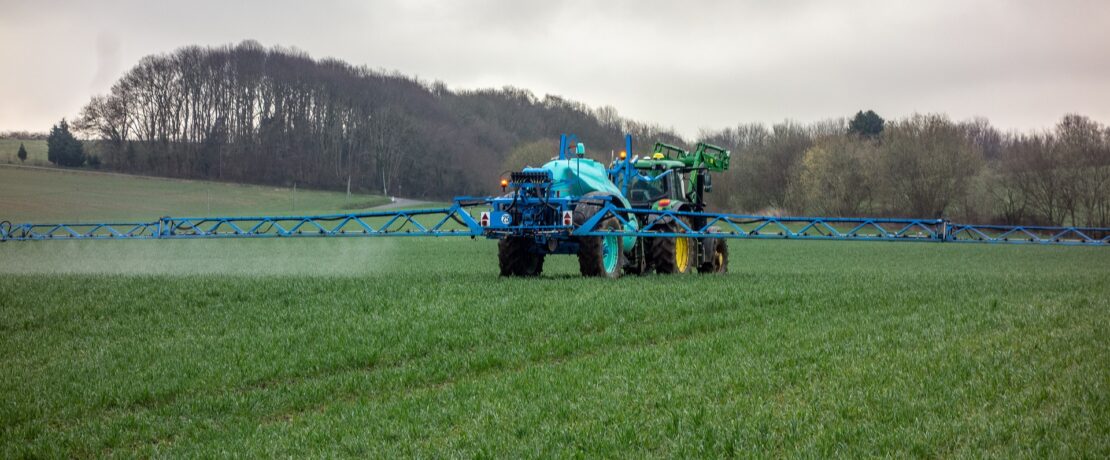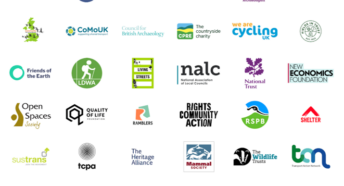Did you know… organic farming could help Europe drop emissions by 40%?
September is well-known as a month to celebrate organic produce, farming, and production methods but this year the Soil Association is raising awareness of the importance of organic farming to our emissions and net zero targets. If the whole of Europe switched to agroecological food and farming systems, such as organic, they estimate that we would see a 40% drop in emissions, with half of this drop coming from a reduction in the use of fossil fuel-based nitrogen fertiliser. Sign their petition to send a message to the government. They are calling for a target to reduce fossil fuel-based fertiliser in UK farming, support farmers to transition from artificial fertilisers, and support nature-friendly farming approaches.
With the world in the midst of a climate emergency, there has never been a more greater need to enact real change. Our food systems contribute to climate change, diet-related ill-health, and the decline of wildlife. There are many ways that we can work together to avoid a worsening climate crisis such as our own #40by50 campaign to encourage planting and restoration of hedgerows to achieve a 40% increase by 2050, but the focus for the Soil Association this #OrganicSeptember is to call for a transition towards ‘agroecological’ farming systems, like organic.
What is ‘agroecological’ farming?
Agroecology is the application of ecological concepts and principles in farming. Agroecology promotes farming practices that;
- Mitigate climate change – reducing emissions, recycling resources, and prioritising local supply chains.
- Work with wildlife – managing the impact of farming on wildlife and harnessing nature to do the hard work for us, such as pollinating crops and controlling pests.
- Put farmers and communities in the driving seat – they give power to approaches led by local people and adapt agricultural techniques to suit the local area – and its specific social, environmental, and economic conditions.
Sustainable farming methods such as organic, biodynamic, or permaculture are all examples of agroecology in practice. Organic farming is governed by a strict set of standards that organic farmers must meet. These rules guarantee higher animal welfare, fewer pesticides and antibiotics, and no genetically modified organisms (GMOs). Organic farmers have to be certified and regularly inspected to ensure they are following the standards and to be legally verified. This means that you can trust that the food and drink you buy with an organic symbol has been made in a way that is better for people, animals, and wildlife, and respects the natural environment too.

Why is organic farming better for the environment?
One of the ways that organic farming is better for the environment is the restrictions on pesticides. Under the Soil Association’s organic standards, all weedkillers are banned, and farmers can only use a limited number of naturally derived pesticides as a last resort and under very restricted circumstances. They might use something like citronella or clove oil for example but in the main the organic farm aims to create a natural balance between plants and animals to prevent pests. Pests can be controlled by healthy wildlife populations for example farmers encourage birds, beetles, and other insects like ladybirds onto their farms to deal with pests like aphids, slugs, and caterpillars.
The pesticides that are designed to kill these insects, as well as weeds and fungal diseases, are named in recent studies as key drivers of global insect declines and the biodiversity crisis.
As well as maintaining a balance between plants and animals on an organic farm the farmers avoid the use of synthetic fertilisers. Keeping the soil healthy is the key to organic farming as the principles of organic are based on nourishing plants naturally by building fertile soils. There are a few ways that farmers can do this including using clover and legumes to ‘fix’ nitrogen as well as compost, animal manure, and green manures such as white clover alongside crop rotations to maintain healthy nutrient-rich soil.
Animal welfare is one of the most important aspects of organic farming, and Soil Association Certification has the highest welfare standards for farming in the UK. Standards cover everything from living conditions and feed to transportation and humane slaughter.
The way we eat and farm can make a world of difference to the climate emergency. If we adopt nature-friendly farming along with other key changes to our food systems we could help keep global warming below 2°C.
Agroecological farming systems, like organic, are intended to sustain the health of soils, ecosystems, and people, working within nature’s cycles and producing food in ways that do not harm the environment.
- Have lower emissions and use less energy
- Lower the risk of pollution in soils and waterways
- Capture and store more carbon
You can read more about why organic is better for the planet on the Soil Association website.

How can I help?
This year marks 50 years of organic certification so this #OrganicSeptember the Soil Association is raising awareness of the important role that farming and food systems have in the fight against climate change. It’s a time to celebrate the businesses that work hard to produce high-quality organic products in a way that works with nature, not against it. There are two easy ways you can support the move to agroecological farming and reduce the impact that farming and food systems have on our environment:
Buy organic – one of the easiest ways you can support agroecological farming methods is to find your local farmers and growers. Maybe there is a local vegetable box scheme you can sign up for or you can just simply start by buying organic food when you go to the shops. Organic food is labelled and guaranteed to have been produced under the exacting standards of the Soil Association and other organic control bodies.
Sign the petition – Emissions from fossil fuel-based nitrogen fertilisers used in intensive farming are contributing to the climate emergency. The way that we grow food is causing air pollution, dying rivers, depleted soils, and a warming climate. If the whole of Europe switched to an organic or agroecological food and farming system, there would be a 40% drop in emissions! Half of this drop would be as a result of a cut in the use of fossil fuel-based nitrogen fertiliser.
Read more and sign the petition: No net zero without fixing fertiliser
We all have a part to play in keeping our wildlife and their habitats thriving for the next generation. If you are interested in helping us protect and celebrate the Surrey Countryside you can discover how to get involved locally here.








